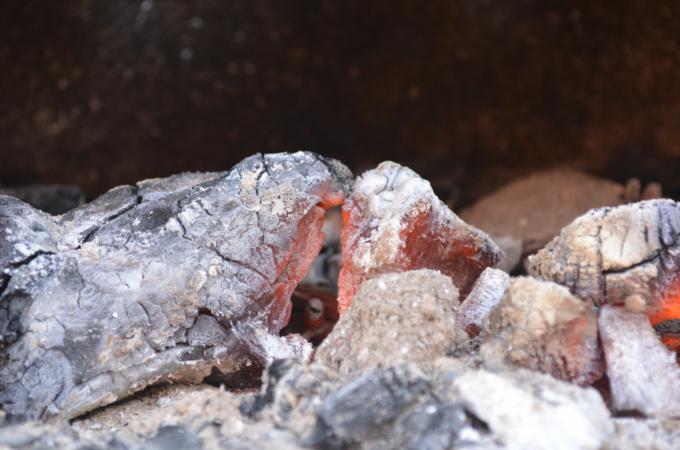Stirring the Smoldering Ashes of our Faith
Anyone who has ever watched a fire knows that at a point the flames subside and disappear into smoldering coals which themselves eventually cool and turn into cold, grey ash. But there's a moment in that process, before they cool off, that the coals can be stirred so as to make them burst into flame again.
That's the image St. Paul uses to encourage us rekindle the fires of our faith when they seem to be burning low: "I remind you to stir into flame the gift of God that was once given you." It's a meaningful image. Our faith sometimes needs some stirring in its roots to make it alive and affective again. But how's that to be done? How do we stir into flame again the fire of our faith?
We stir our faith back into flame by re-situating ourselves inside its roots. Despite the fact that faith is a divine gift, it can be helpful sometimes to journey back and examine what earthily forces helped plant the faith inside us.
Who and what helped give us faith? Of course, that's a deeply personal question that each of us can only answer for himself or herself. For myself, when I try to go back and touch the roots of my faith a number of things come into focus.
First, there was the faith and witness of my parents, the critical piece. Faith was the most important thing in their lives and they did everything in their power to ensure that this was true too for us, their children. And their lives never belied their faith. That's a strong witness and a gift of incalculable value.
Then there was the witness of my parish church, a rural, immigrant community, small enough so that everyone knew everyone else's joys and sorrows and was able to share them in faith, even if not always in full neighborly warmth. It takes a village to raise a child, in my case it was a parish. As a boy growing up, I could glance around a church and see most everyone I knew, friend or not, all kneeling together in one faith. That's a rarity today and no small gift.
Next came the dedication and faith witness of the Ursuline sisters who came into our rural community to teach in our public schools and were not only our best teachers academically but also catechized us. By the time I'd reached my teens, I'd memorized two catechisms and had a solid intellectual grasp of the tenets of my faith, a gift whose importance I recognized only later on.
Finally, and in a way that left deep, permanent roots in my soul, there was the voice of the God of my youth. During my youth, God's voice was strong and clear inside me. Admittedly some of what I took to be God's voice then was in actuality the voice of fear, timidity, tribalism, and what Freudians term the superego. But, that being admitted, God's voice was there too, unavoidable, clear. I know that because much of my youthful fear, timidity, crass tribalism, and superego have long since departed, and the voice of the God of my youth remains inside me still.
However, now, sometimes that voice can be quite silent, and it can feel as simply the voice of the naiveté of my youth -- Santa, the Easter Bunny, and Jesus - and not something that's real anymore or indeed ever was really real. For me, as for everyone, faith-wise, sometimes my imagination and affectivity simply run dry so that my preoccupations preclude God's presence. It's then that I need to stir the seemingly smoldering coals of my faith by making a journey back to reground myself in the reality of my parents' faith, in the reality of what branded my soul in our small parish community, in the reality of the witness and catechesis of the Ursuline sisters who taught me, and, not least, in that clear, deeply moral, divine voice that spoke inside me and guided me in my youth.
This kind of journey, I believe, can be helpful for most everybody, with one cautionary flag: The seeming silence of God in our lives as adults can in fact be a deeper modality of God's presence rather than a sign of a deteriorating faith. The voice of God often seems clear in our youth but later on that clarity gives way to what the mystics call "dark nights of the soul", where God's seeming absence is not a question of a loss of faith but of a new, richer, less-imaginative mode of God's presence in our lives. Fervor is not always a sign of a deep faith, just as the seeming absence of God is not necessarily a sign of a weakening faith. God must be patiently waited for and will arrive in our lives only on God's terms, not ours.
Even so, St. Paul's advice remains: "I remind you to stir into flame the gift of God that was once given you."
- Oblate Father Ron Rolheiser, theologian, teacher, and award-winning author, is President of the Oblate School of Theology in San Antonio, TX. He can be contacted through his website www.ronrolheiser.com.
Now on Facebook www.facebook.com/ronrolheiser



















